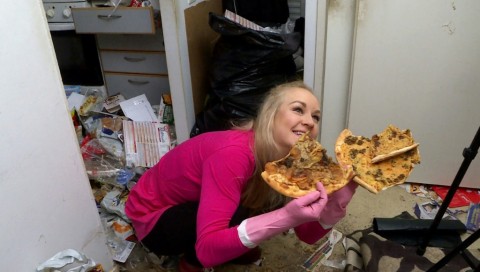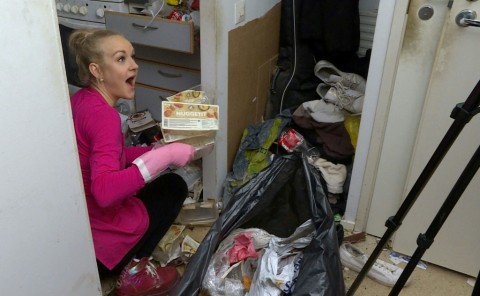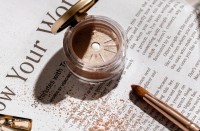Helsinki, Finland (AFP)
by Elias HUUHTANEN in Helsinki and Julie EZVAN in Liverpool

Marie Kondo may have admitted defeat, but a new generation of “cleanfluencers” is taking social media by storm, with millions watching them scour filthy homes and dole out cleaning hacks.
Digging through a mountain of trash, Auri Kananen uncovered a rotten piece of pizza on the floor of a Helsinki flat, with insects devouring it.
“I love cleaning, I love dirt,” declared the 30-year-old Finn, who has far more social media followers than Kondo, the Japanese tidying guru who has admitted embracing the messier side of life since having her third child.
Kananen has quickly become one of the world’s most successful “cleanfluencers”, travelling the globe hunting for “the dirtiest homes possible”.
“I remember when I had 19 followers. Even then it felt really cool to have 19 strangers wanting to see me clean,” said Kananen, or aurikatariina as she is known to her nine million followers on TikTok, with two million on YouTube.
In her upbeat videos, she dusts, scrubs and sorts, wearing her signature hot pink rubber gloves as zippy pop music plays in the background.
Her voiceovers often explain how the person she is helping ended up living in squalor.
“Usually people have some mental health problem or other tragedy that has happened in their lives,” Kananen told AFP.
The flat in Helsinki is the home of a depressed young man whose brother suffers from multiple sclerosis, she explained.
She can relate to people living in miserable conditions because she went through a period of depression herself, she said.
“I know how overwhelming it is,” she said.
But her experience has shown her that no situation is hopeless.
The comments sections of her videos are filled with people saying how her videos have helped them cope with their difficulties, praising her non-judgemental manner.
“I love how she is understanding the person in this situation and helping them instead of blaming them,” one commenter wrote.
– TikTok tidiers –
With the global rise of TikTok, cleaning videos have become hugely popular on social media, inspiring a growing number to start posting content.
“I was watching videos and I thought, that’s what I do at home, I can just film myself doing it,” recalled 27-year-old Abbi, known as cleanwithabbi to her two million followers.
The English single mum films herself cleaning, doing the dishes and hoovering in her red brick home in Huyton near Liverpool.
Cleaning has always been an important part of her life as her youngest son Billy lives with sensory processing disorder.
“He really loves his routine and he does like things to be clean,” she said.
Now Abbi, who does not wish to reveal her full name, posts TikTok videos for a living. Brands sponsor her to use their products, and she earns between $720 and $1,200 a video.
Abbi — whose sons Jack and Billy are six and five — hits the record button on her phone and swiftly makes their beds, arranging the soft toys nicely.
“It relaxes me, it’s like therapy,” she told AFP.
“For me it’s like an escape from any worries I’ve got.”
– ‘It’s satisfying’ –

Ann Russell, a 59-year-old full-time cleaner from the south of England, has a different approach.
Sitting on her sofa with her black dog Hollie, she answers a question from one of her TikTok followers, holding her phone up to her face.
To remove a felt tip mark from a wooden table without removing the varnish she recommends isopropyl alcohol: “Dip a cotton bud in it and just rub it gently.”
She said people need to be taught how to clean properly.
“If nobody told you, how on earth are you supposed to know?” she told AFP.
Russell makes between four and 12 videos every day, answering questions from her 2.3 million followers in a no-nonsense fashion.
“I turn the phone on, I talk to the phone, and that’s it. That’s about as good as it gets. I am not very proficient,” she said with a laugh.
The fact that cleaning “is satisfying” may be behind the videos’ success, Russell said.
Most of her and Abbi’s viewers are women and millennials, as well as people struggling to find the motivation to clean.
“Washing your socks, pairing them up and putting them in the drawer (gives) a sense of a good job well done,” she said.
“It makes people feel in control. And because they feel in control in their personal life, they feel that the outside world is a safer place.”







